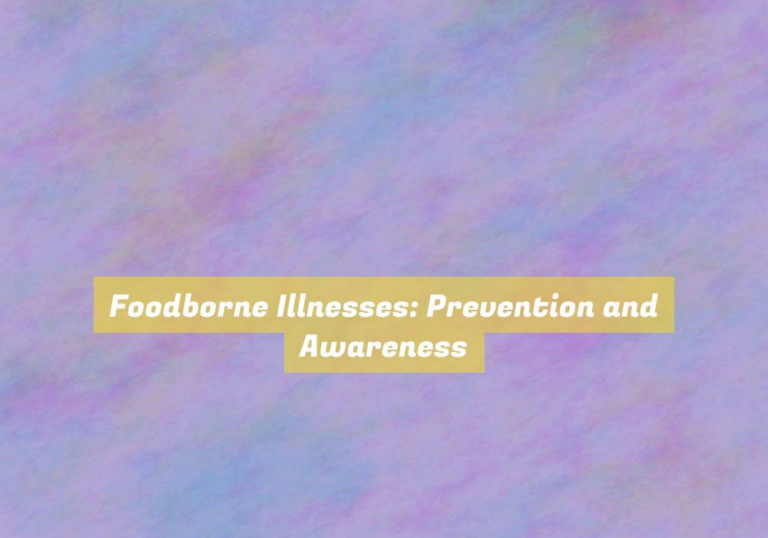Making Healthy Choices: Preventive Lifestyle Strategies for Wellness
Imagine yourself waking up feeling refreshed and energized, ready to take on the day with vigor and vitality.
What if there were simple, everyday choices you could make that would significantly impact your overall well-being?
Making healthy choices isnG??t just about the absence of illness, but about proactively cultivating a lifestyle that promotes wellness and prevents disease.
By incorporating preventive strategies into your routine, you can optimize your physical, mental, and emotional health.
So, how can you start making these changes and taking control of your wellness?
Importance of Physical Activity
Engaging in regular physical activity is essential for maintaining optimal health and wellness. It not only helps in managing weight and reducing the risk of chronic diseases but also improves your overall quality of life. When you participate in physical activities, your body releases endorphins, which can elevate your mood and reduce feelings of stress and anxiety.
Regular physical activity also strengthens your muscles and improves your cardiovascular health. This, in turn, can enhance your endurance and energy levels, making it easier for you to accomplish daily tasks and activities. Additionally, engaging in physical activity can improve your sleep quality, allowing you to feel more rested and rejuvenated each day.
Furthermore, physical activity can also be a great way to connect with others and build a sense of community. Whether itG??s joining a sports team, attending fitness classes, or simply going for a walk with a friend, being physically active can provide opportunities for social interaction and support.
Nutritional Guidelines for Wellness
Regular physical activity is closely linked to your nutritional guidelines for wellness, as the food you consume plays a crucial role in supporting your overall health and vitality. When considering your nutritional choices, itG??s important to focus on consuming a variety of nutrient-dense foods such as fruits, vegetables, whole grains, lean proteins, and healthy fats. These foods provide essential vitamins, minerals, antioxidants, and fiber that support various bodily functions and help prevent chronic diseases.
In addition to focusing on nutrient-dense foods, itG??s important to be mindful of portion sizes and to practice moderation with foods high in added sugars, sodium, and unhealthy fats. Limiting the intake of processed foods, sugary beverages, and high-fat snacks can contribute to maintaining a healthy weight and reducing the risk of cardiovascular diseases and type 2 diabetes.
Furthermore, staying hydrated is a key component of your nutritional guidelines. Drinking an adequate amount of water daily supports digestion, nutrient absorption, and overall bodily functions. Making mindful and informed choices about the foods you consume can significantly impact your overall wellness and contribute to a healthy, vibrant lifestyle.
Stress Management Techniques
To manage stress effectively, prioritize incorporating relaxation techniques into your daily routine. Start by setting aside time for activities that promote calmness and reduce tension.
Deep breathing exercises can help you relax and center yourself, especially when youG??re feeling overwhelmed. Taking short breaks throughout the day to stretch, walk, or practice mindfulness can also make a significant difference in managing stress levels.
Additionally, consider incorporating regular physical activity into your routine, as exercise isnG??t only beneficial for your physical health but also for your mental well-being. Whether itG??s yoga, running, or dancing, find an activity that you enjoy and make it a regular part of your week.
Another essential aspect of stress management is ensuring that you get an adequate amount of sleep each night. Prioritize establishing a relaxing bedtime routine and creating a comfortable sleep environment.
Lastly, donG??t hesitate to seek support from friends, family, or a mental health professional if you find that stress is significantly impacting your daily life. Remember, managing stress is crucial for maintaining overall wellness.
Prioritizing Rest and Sleep
One way to prioritize rest and improve your sleep quality is by establishing a consistent bedtime routine that signals to your body itG??s time to wind down and relax. This routine could include activities such as reading a book, taking a warm bath, or practicing relaxation techniques like deep breathing or meditation. By consistently following this routine, you can train your body and mind to recognize when itG??s time to prepare for sleep, making it easier to fall asleep and stay asleep throughout the night.
In addition to establishing a bedtime routine, creating a comfortable sleep environment can also significantly impact your sleep quality. This involves keeping your bedroom cool, dark, and quiet, investing in a comfortable mattress and pillows, and minimizing electronic distractions before bedtime. By making these adjustments, you can promote a more restful and uninterrupted sleep, allowing your body and mind to fully recharge for the next day.
Prioritizing rest and sleep is essential for overall wellness, as it can improve your mood, energy levels, and cognitive function. By incorporating these strategies into your daily routine, you can enhance the quality of your sleep and ultimately support your overall health and well-being.
Conclusion
In conclusion, making healthy choices is essential for maintaining overall wellness.
By incorporating regular physical activity, following nutritional guidelines, managing stress, and prioritizing rest and sleep, you can take proactive steps towards a healthier lifestyle.
ItG??s important to remember that small changes can lead to big improvements in your overall well-being.
So, keep making those healthy choices and prioritize your health and wellness every day.






